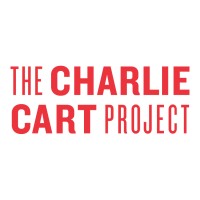
The Charlie Cart Project
The Charlie Cart Project is a food education program on wheels. Our compact mobile kitchen -- the Charlie Cart -- comes fully equipped with the tools, training and curriculum that educators need to deliver high quality hands-on cooking lessons in classrooms, libraries and clinics across the country. Currently in 400+ locations in 47 states. Learn more at charliecart.org. A rigorous curriculum, connected to Common Core math, science and English Language Arts, makes it easy for teachers to integrate food education into the academic day, while maximizing and enhancing instructional time.






